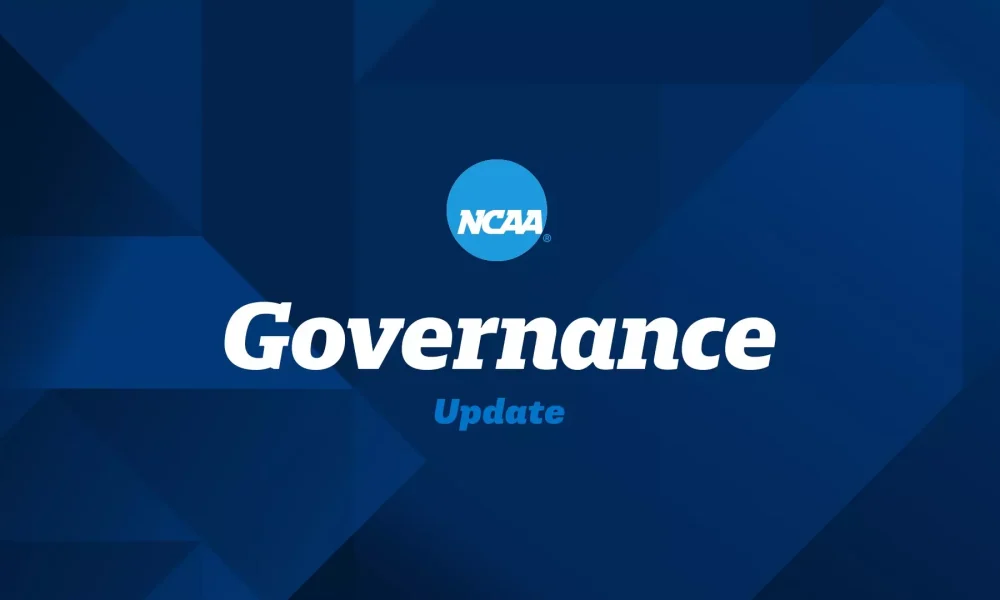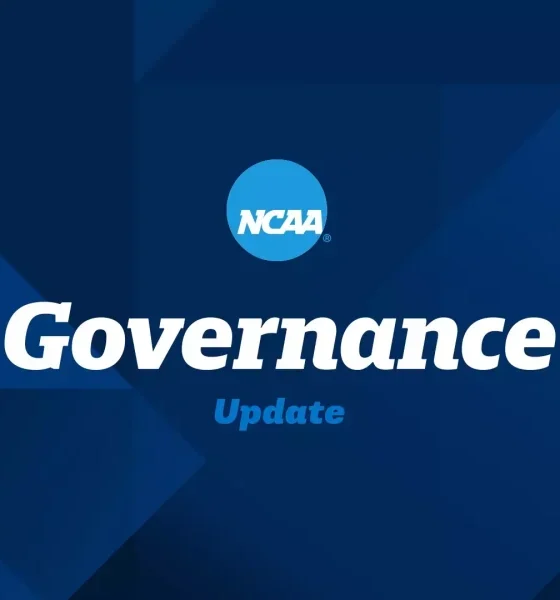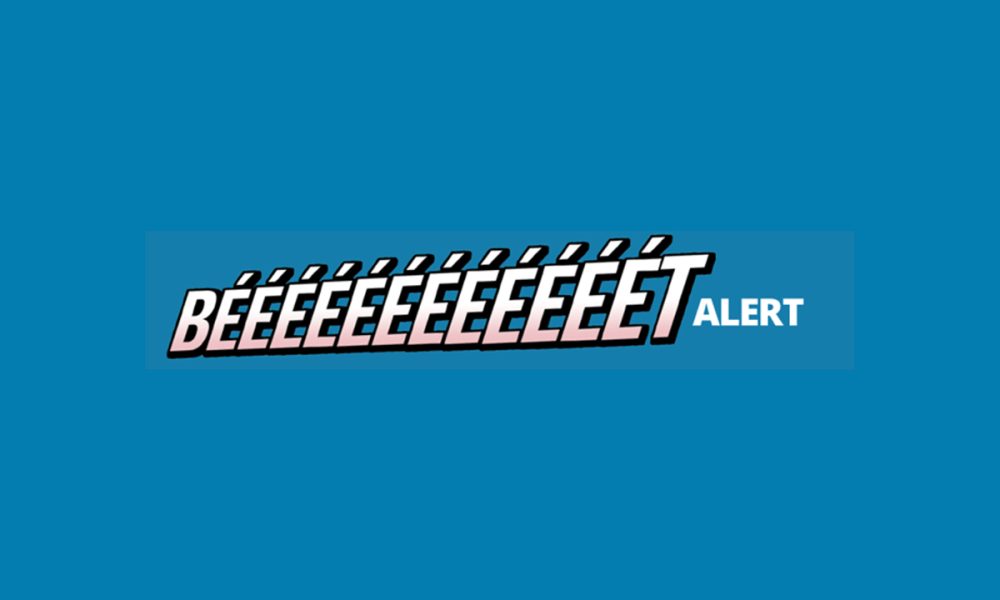

Compliance Updates
New Initiative from DI Council Aims to Enable Betting on Professional Sports
The Division I Council introduced a proposal that, if adopted in October, would change sports betting rules to permit student-athletes and staff members to bet on professional sports and refocus the Association’s enforcement efforts on college sports betting and behaviors that directly impact game integrity. If adopted, the change will be implemented only if Divisions II and III also vote to allow betting on pro sports.
The council’s introduction of the proposal, which comes after a directive from the Division I Board of Directors in April that the council adopt changes to sports betting rules, is not an endorsement of sports betting behaviors, especially for college athletes. The NCAA’s prohibition against betting on college sports would remain in place, as would the prohibitions against sharing information about college events with bettors. The NCAA also would continue to maintain its prohibition for NCAA championships against advertising and sponsorships associated with betting.
“NCAA rules prohibiting sports betting at all levels were written and adopted at a time when sports gambling was largely illegal nationwide,” said Josh Whitman, athletics director at Illinois and chair of the council. “As betting on sports has become more widely accepted across the country, Division I members have determined that further discussion of these sports betting rules is warranted, particularly as it relates to the potential distinctions between betting on professional versus collegiate sports. Throughout our discussions, the council has remained focused on student-athlete wellness and educating student-athletes about the risks and potentially harmful impacts of betting.”
Current NCAA rules do not allow student-athletes or institutional staff to engage in sports betting at any level (professional, college or amateur) for any sports that have NCAA championships, and NCAA members have continually maintained that any betting by a student-athlete on his or her own team or own sport in college should continue to result in a permanent loss of any remaining collegiate eligibility. However, in 2023, Division I changed the reinstatement guidelines for student-athletes who participate in sports betting on professional sports to focus on harm reduction for problematic betting behaviors.
“Deregulating professional sports betting may provide schools an additional opportunity to implement harm-reduction strategies, which can be more effective and have long-term benefits not seen with abstinence-only approaches. Harm-reduction strategies include education, stigma reduction and acknowledging actual behaviors,” said Dr. Deena Casiero, NCAA chief medical officer. “By meeting student-athletes where they are, schools may be more effective at preventing, identifying and supporting student-athletes with problematic gambling behaviors. Regardless of the change, schools are encouraged to use the many sports betting resources already available.”
The recently released Harm Reduction Considerations for Gambling & Sports Betting in Collegiate Sports references available sports betting resources, including the NCAA Mental Health Best Practices. Additionally, more than 100,000 student-athletes, coaches and administrators have been reached through the NCAA’s education efforts with EPIC Global Solutions, and the NCAA has launched an e-learning module to educate student-athletes on problem gambling harms and the integrity risks associated with sports betting.
Several sports betting-related violations by staff members at NCAA schools have been resolved through the infractions process in recent years, and the enforcement staff is working on issuing Notices of Allegations in several ongoing cases that involve allegations of betting on professional and college sports by student-athletes and/or athletics department staff members at a handful of NCAA schools.
The proposed rule change would not be retroactive. If it is adopted, it would apply only to sports betting activities that occur after the effective date of the proposal.
“The enforcement staff’s sports betting-related caseload has significantly increased in recent years, and our staff — including our new sports betting integrity unit — has been effective in detecting and pursuing violations,” said Jon Duncan, NCAA vice president of enforcement.
The Association prioritizes competition integrity, which is vital to college sports. The NCAA uses a layered strategy to respond responsibly to the rise in sports betting across the United States by monitoring over 22,000 contests per year, advocating for limits on prop bets that pose heightened risks, reducing the potential for student-athlete abuse by aggrieved bettors, and creating greater transparency to assist with the timely investigation and resolution of integrity-related issues.
This layered approach includes the most recent agreement extension with Genius Sports to establish unprecedented betting restrictions on high-risk proposition bets. Sportsbooks licensing NCAA championship data must cooperate fully with NCAA investigations, including providing access to account data, financial history and geolocation records. This will allow the NCAA to work with the sportsbooks to gather detailed account information when harassers are identified to prevent repeat offenders from continuing to place bets across platforms, increasing safeguards to protect student-athlete mental health and well-being.
The post New Initiative from DI Council Aims to Enable Betting on Professional Sports appeared first on Gaming and Gambling Industry in the Americas.
BetAlert
Brazilian Institute of Responsible Gaming Launches BetAlert

The Brazilian Institute of Responsible Gaming (IBJR), an entity that brings together the main operators in Brazil and worldwide, announces the launch of BetAlert, an unprecedented tool that allows any user to quickly and easily verify whether the betting site they intend to use is regulated by the Federal Government. The initiative is part of the “No More Elephant in the Room” campaign, which includes a TV commercial, radio spots, airport panels, and social media actions. Its goal is to guide bettors in choosing platforms regulated by the Secretariat of Prizes and Betting, under the Ministry of Finance.
Conducted between April and May 2025 with 2000 adult bettors, research by the Locomotiva Institute served as the basis for the economic study prepared by LCA. The survey estimates that between 41% and 51% of the Brazilian betting market still operates illegally. The activity of these irregular platforms reflects an alarming fiscal impact: between R$ 1.8 billion and R$ 2.7 billion went uncollected in just three months – which could reach R$ 10.8 billion in one year.
Named BetAlert (https://betalert.com.br/), the technology runs on an exclusive microsite that offers an interactive experience for those looking to bet safely and obtain tips on how to differentiate regulated betting sites from illegal ones. Simply enter the URL of any betting site, and the tool immediately indicates whether the platform is licensed. If it is regulated, the following message appears: “All good. This betting site is authorized by the Federal Government.” If not, the system displays a creative alert integrated into the campaign by agency We: “Attention. This betting site is not authorized by the Federal Government,” reinforcing the illegality of the platform consulted.
“IBJR greatly values the use of tools and technologies that contribute to spreading knowledge about the sector. BetAlert is extremely important, and we hope it will be widely used by bettors and Brazilian society. Our goal is to ensure that people have access to all the benefits of regulation, the core of which is the safety of those who bet,” said Fernando Vieira, Executive President of IBJR.
The post Brazilian Institute of Responsible Gaming Launches BetAlert appeared first on Gaming and Gambling Industry in the Americas.
Compliance Updates
German Betting Association Warns of Rise of Black Market Gambling

Only one in twelve German betting websites is legal, warns the German Sports Betting Association (DSWV) at the start of the UEFA Champions League season: there are at least 382 illegal German-language websites offering sports betting compared to just 34 legal betting sites. The DSWV refers to a corresponding evaluation by the Joint Gambling Authority of the federal states (GGL) for the year 2024.
“Online, it’s 11:1 in favor of the black market and that puts players at risk. In the legal sports betting market, players benefit from guaranteed player protection, reliable payouts and tax revenue for the common good. Illegal providers in the black market, on the other hand, do not adhere to any rules, offer no security and have a higher risk of gambling addiction,” Mathias Dahms, President of the German Sports Betting Association (DSWV), said.
With the start of the UEFA Champions League, the second most-bet competition in Germany after the Bundesliga, the volume of betting has skyrocketed.
“Players need to be particularly vigilant at this time of year so that they don’t accidentally end up with illegal providers. This is another reason why it is important that the legal providers are present with perimeter boards and TV advertising during the Champions League matches,” Dahms said.
What many players do not know is that they are not only taking a higher risk, but are also liable to prosecution. Participating in unauthorized sports betting can result in a prison sentence of up to six months or a fine.
How to recognise legal betting providers:
• Only legal providers may advertise on stadium boards and on television during sporting events such as the Champions League or Bundesliga.
• Only providers on the GGL whitelist are legal in Germany. The list is publicly available at www.gluecksspiel-behoerde.de/whitelist.
• Legal providers have a clearly visible GGL permit logo on their website.
• Only legal providers offer comprehensive player protection measures such as deposit limits, player bans and monitoring of conspicuous gaming behavior.
• Only legal providers contribute to the funding of support services for gamblers at risk of gambling addiction, such as the anonymous and free hotline 0800-1372700 or the website check-dein-spiel.de of the Federal Institute of Public Health (BIÖG).
• With legal providers, payouts are guaranteed and the stakes are properly taxed.
“It is in the common interest of regulators, providers and players to strengthen the legal market and push back the black market. This is the only way to ensure player protection, integrity and tax revenues,” Dahms said.
The post German Betting Association Warns of Rise of Black Market Gambling appeared first on European Gaming Industry News.
Compliance Updates
Ukraine’s PlayCity Begins Issuing Licenses to Gambling Operators

The Cabinet of Ministers of Ukraine has adopted a resolution on licensing conditions in the gambling sector, which allows the state agency PlayCity to begin issuing licenses to gambling organisers and confirming previously issued ones.
“As a result, this will generate almost UAH 50 million (1.028.956,00 Euro) in additional revenues to the state budget from license fees in the near future,” PlayCity reported on Telegram.
It is noted that to obtain a license, impeccable business reputation, lack of ties with the aggressor state and implementation of all necessary mechanisms for responsible gaming are required.
PlayCity clarified that such requirements apply to both those who are only applying for a license and current licensees. Current licensees have two months to submit documents to PlayCity on compliance with the requirements.
The message emphasises that if the requirements are not met, sanctions in the form of fines or termination of the license may be applied to the organisers of gambling.
“The state will direct additional budget revenues to strengthen defense capabilities, in particular, to purchase drones for the Defense Forces,” PlayCity added.
The post Ukraine’s PlayCity Begins Issuing Licenses to Gambling Operators appeared first on European Gaming Industry News.
-

 gaming3 years ago
gaming3 years agoODIN by 4Players: Immersive, state-of-the-art in-game audio launches into the next generation of gaming
-
EEG iGaming Directory9 years ago
iSoftBet continues to grow with new release Forest Mania
-
News8 years ago
Softbroke collaborates with Asia Live Tech for the expansion of the service line in the igaming market
-
News7 years ago
Super Bowl LIII: NFL Fans Can Bet on the #1 Sportsbook Review Site Betting-Super-Bowl.com, Providing Free Unbiased and Trusted News, Picks and Predictions
-
iGaming Industry8 years ago
Rick Meitzler appointed to the Indian Gaming Magazine Advisory Board for 2018
-
News7 years ago
REVEALED: Top eSports players set to earn $3.2 million in 2019
-
iGaming Industry8 years ago
French Senator raises Loot Boxes to France’s Gambling Regulator
-
News7 years ago
Exclusive Interview with Miklos Handa (Founder of the email marketing solutions, “MailMike.net”), speaker at Vienna International Gaming Expo 2018













